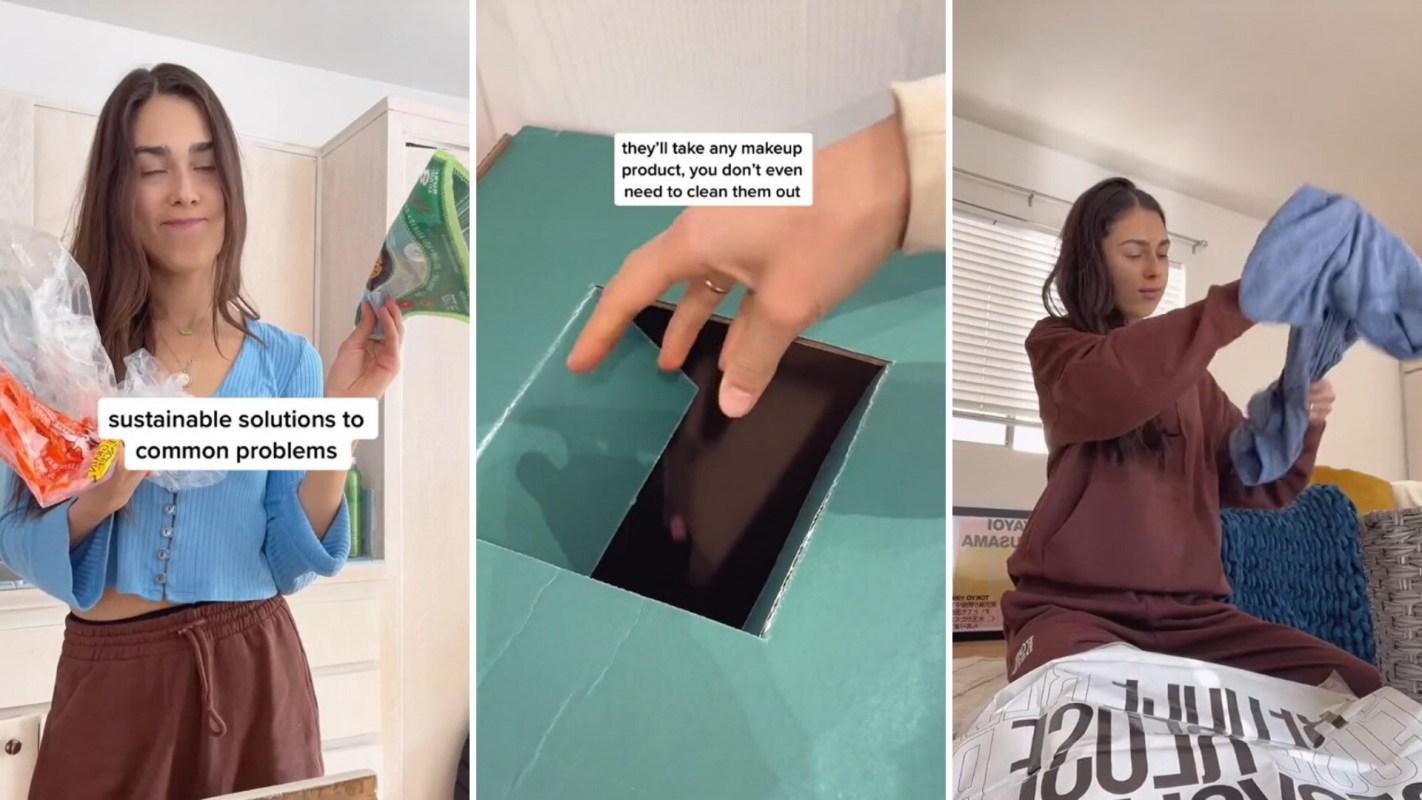Many people dispose of items in the trash without thinking twice. One TikToker, Delilah (@delilah_isabel), shows how people can be more mindful of how they dispose of everyday items and displays how there is more work to be done in the dimension of "sustainable consumerism."
The scoop
Delilah's TikTok video shows three ways consumers can reduce the environmental impact of their purchases. She explains that individuals can toss thin plastics, such as the kind used for food packaging, in a store's plastic recycling receptacle. Delilah also encourages individuals to throw their old makeup packaging away at Nordstrom's Beautycycle drop boxes.
@delilah_isabel lmk what other sustainability challenges you run into & need fixes for 🫶 #sustainableliving #sustainableswaps #ecofriendlylifestyle #sustainablelifestyle #ecotips #fordays #recyclinghacks #sustainablebrand ♬ Sunny Day - Ted Fresco
Lastly, she encourages individuals with out-of-style or infrequently worn clothing to package and send it to ForDays.com. The Take Back Bag program incentivizes $20 store credit for each bag sent in. According to the company's website, each Take Back Bag saves 15 pounds of clothing waste from ending up in a landfill or about 118 pounds of dirty carbon dioxide pollution.
How it's helping
Although Delilah's tips are good in theory, and we need more people thinking about these topics, these aren't all no-brainer savers. While it is true that thin plastics cannot be recycled curbside, there are reports of stores not actually recycling the bags thrown into these receptacles.
The U.S. only has the processing capacity to recycle less than 5 percent of plastic film, too — and most that does get recycled comes from back-end pallet wrapping that tends to be cleaner than products like food wrapping.
The best way to fight these plastic risks to land and marine life is to support legislation that eliminates such bags and packaging and to take your business elsewhere in the meantime. Users can also go to stores that offer low-packaging alternatives, like the bulk section at some specialty grocery stores.
As to her second point, Nordstrom's Beautycycle receptacles are part of a partnership with TerraCycle, which specializes in recycling uncommon packaging materials, but even TerraCycle has faced allegations of inflated promises of recyclability.
Either way, there have been too many stories about poor results from plastic recycling. Customers shouldn't expect that a huge percentage of what they drop off will be recycled, but it's still a better destination than the garbage for any of these products.
For Days requires individuals to purchase the bag, which costs $20, so there are some upfront drawbacks, but online clothing resellers are still far better than fast fashion. Repurposing clothes on consignment locally or donating them is a much better way to reduce your contribution to planet-warming gases — plus, you won't have to mail the clothes halfway across the country, which requires fuel. You'll also find a plethora of affordable thrift finds to update your style.
What everyone's saying
Some TikTok users focused on the positives or offered other solutions.
"Your dedication is truly impressive," said one commenter.
"use thread up! the bag is free and they send you money when your stuff sells. otherwise they recycle it," said another, speaking about thredUP, a similar company to For Days.
"My husband works at TARGET and he's told me EVERYTHING just gets tossed in the TRASH," one user lamented.
This user summed up the major takeaway: "Pressure these companies to change or don't buy from these companies. … Food plastics are hard to avoid unless you go to the farmers market or grow/cook. Try to refuse packaging whenever you can!"
Join our free newsletter for easy tips to save more, waste less, and help yourself while helping the planet.









